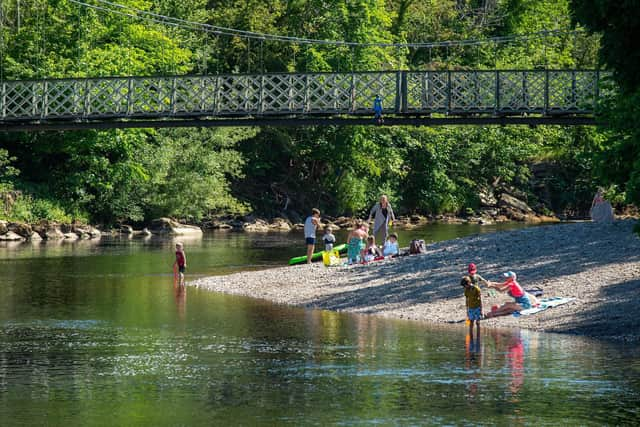Bill will combat shame of waterways polluted by sewage - Liberal Democrat ex-leader Tim Farron
Cumbria is one of the most beautiful places on earth.
It is also, on occasion, one of the wettest. It needs to be; how else could we keep the lakes, tarns, meres, waters, rivers and becks filled and flowing? Cumbria is home to two national parks and two world heritage sites, yet its waterways are shamefully often polluted by sewage discharges, and those discharges take place legally and without sanction. Our lakes and rivers are our natural treasures, yet water company bosses are degrading those natural treasures to keep a hold of their own treasure.
Last year, the water companies made profits of £2.7bn and paid out £27m in bonuses. Their chief executives earn seven-figure sums, yet they are free by law to preside over enormous numbers of dangerous discharges that damage our environment and our wildlife, and are a threat to human life, too. This Bill aims to stop the water companies putting their personal treasure ahead of our natural treasure.
Advertisement
Hide AdAdvertisement
Hide Ad

The Government choose to let them get away with it, but this Bill will stop them.
In 2021, raw sewage was pumped into the River Lune near Sedbergh in my constituency for 5,351 hours – the equivalent of 222 continuous days. This is not just a problem for me and my constituents; it is a colossal crisis affecting the entire country.
Water companies pumped sewage into rivers nationwide 772,000 times in the last two years – more than 1,000 discharges each day. Some of those discharges lasted almost a whole year, and all of them were legal.
Sewage discharges happen far too frequently and for far too long for the Government and the water companies to be able to credibly hide behind the excuse that they are caused only by exceptional rainfall.
Advertisement
Hide AdAdvertisement
Hide AdIt is true that our sewerage systems are shamelessly out of date, but the water companies responsible for improving them have little impetus to do so because the Government are barely holding them to account. The British public pay these companies to not just provide us with clean water, but ensure safe and clean processes for waste water and sewage. Too often, it feels as though the companies forget about half of that bargain, and this Government let them.
The water companies are also guilty of emissions that have broken the law, but they are rarely held to account. That is, of course, something of a theme for this Government. Between 2018 and 2021, only 11 fines were issued to water companies for pumping sewage into our lakes and rivers. Only three of those fines were over £1m, and four were less than £50,000. The Government make it cheaper for water companies to pay a fine than to take action to stop the discharges.
Tourism and hospitality employs 60,000 people in Cumbria. It is by far our biggest employer, being worth £3.5bn a year to our local economy. I do not want the Government to put that at risk by allowing our lakes to be polluted. I want them to protect the wellbeing of everyone who visits and lives in the lakes. As well as the human impact, there is an ecological impact.
Maintaining the quality of our rivers, streams and lakes is crucial to protecting biodiversity for centuries to come. The Environmental Audit Committee has reported that “rivers in England are in a mess.”
Advertisement
Hide AdAdvertisement
Hide AdThe population of 39 of the 42 main salmon rivers in England are categorised as at risk or probably at risk. When one part of the complex interconnected life of a river is damaged, the whole ecosystem is hurt, from duckweed and dragonflies to otters and trout.
We must not be duped into thinking that the Government took action to deal with this in the Environment Act 2021.
We remember they had to be dragged kicking and screaming by Members of the other place into moving an amendment, but that amendment is essentially meaningless. It sets no timescales or targets. It is a wish list, not an action plan.
This Bill would put that right by ensuring that action is taken. It would provide for mandatory targets and timescales for the ending of sewage discharges into waterways and coastal areas. It would also strengthen Ofwat, the Water Services Regulation Authority, to hold water companies accountable.
Advertisement
Hide AdAdvertisement
Hide AdFurthermore, it would take the radical step of placing representatives of local environmental groups on the board of these companies so that executives have nowhere to hide from the impact of their practices on our waterways, on the wildlife that depends on them and on the economies and communities they underpin.